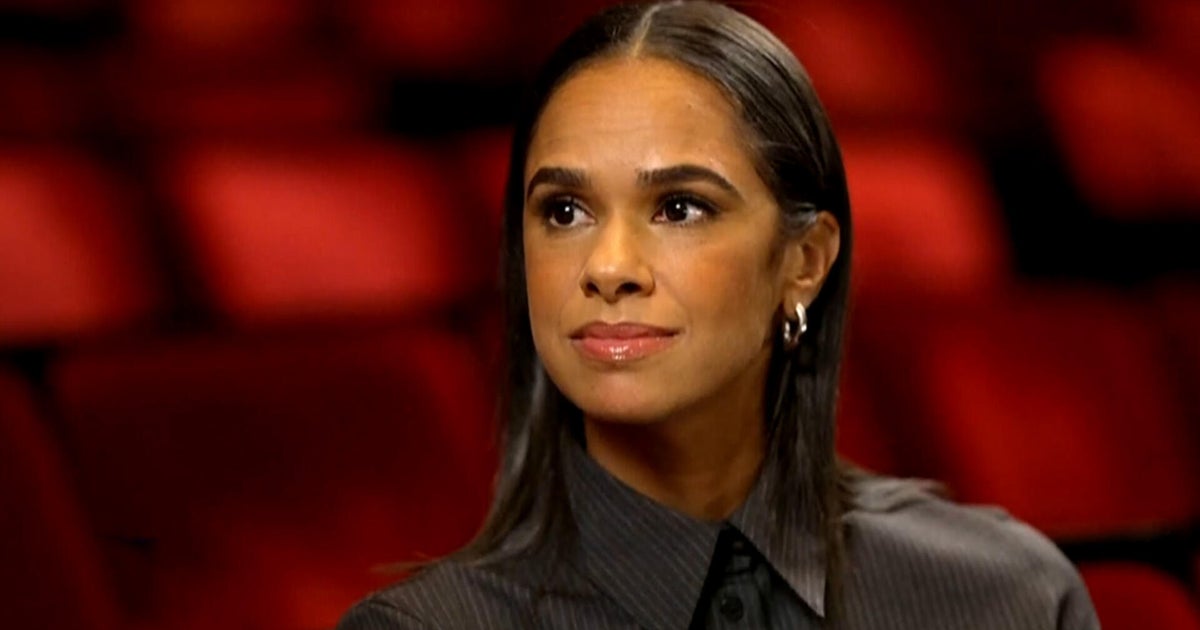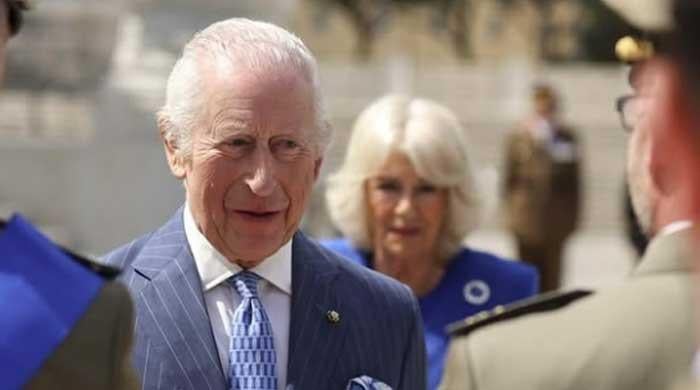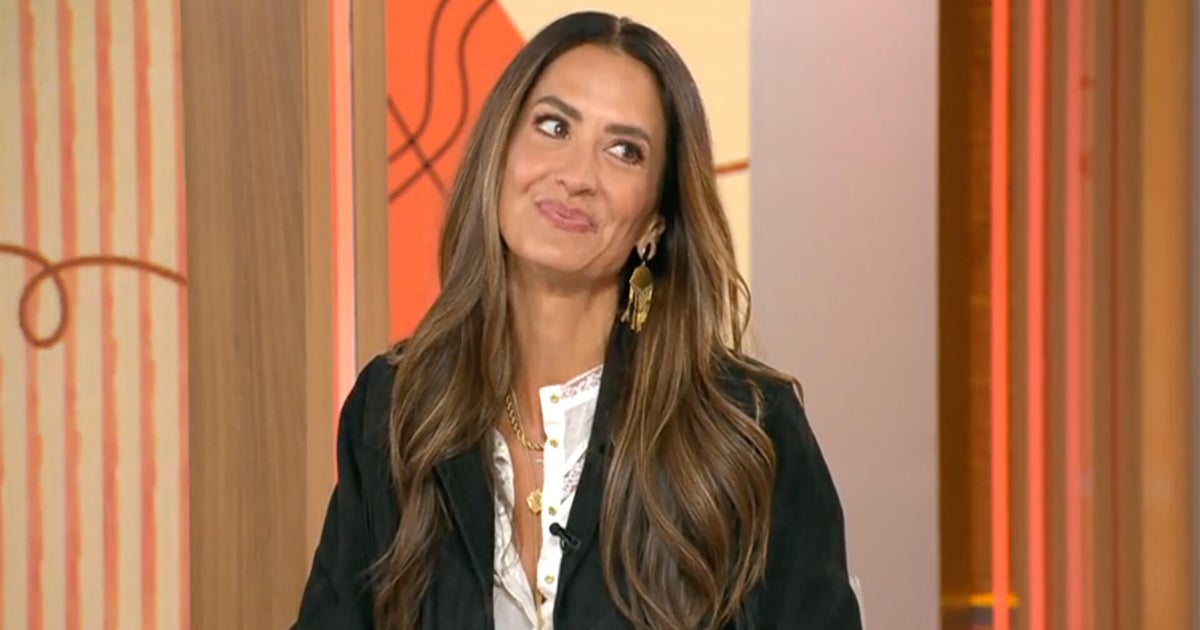Under the bright lights of the David H. Koch Theater at Lincoln Center, Misty Copeland took her final bow, a moment that marked not just the end of a performance but the close of a chapter that transformed American ballet. The trailblazing dancer, who shattered racial barriers in the art form, retired on Wednesday as a principal dancer with the American Ballet Theatre after 25 years with the company.
But she told “CBS Mornings” in an exclusive interview that the decision to perform one last time wasn’t something she initially wanted.
“It’s been such an interesting kind of lead up to this moment, because I in all honesty I didn’t wanna come back to the stage and have this moment,” she told Gayle King.
When asked why, Copeland explained that by 2019, her last year performing with the American Ballet Theatre before taking a 5-year hiatus, she had begun to feel drained after decades of dancing.
“I really was starting to feel burnt out, kind of losing that passion that I’ve had my whole career and whole life for dance,” she said. “And I always promised myself I wouldn’t go onstage if I didn’t feel that I was delivering from my heart and, you know, my soul.”
She said that after taking time away, she viewed her return as an opportunity for closure and gratitude.
“In taking these five years, and really thinking about what this moment means in terms of just closure and saying thank you, that, I think, is what has gotten me back onstage for the show,” Copeland said.
The final bow
At Copeland’s farewell gala at Lincoln Center, Oprah Winfrey and Debbie Allen were among those who honored her career and impact.
“Misty Copeland didn’t just perform ballet, she changed it,” Winfrey said. “She did. She redefined who belongs, who gets to be seen, and who gets to lead.”
Allen also praised Copeland’s influence. “You are a prophecy come true. A prophecy of goodness, and genius and grace and power,” she said.
Copeland helped organize the evening’s program, which included a scene from “Romeo and Juliet.”
“I really wanted to do this piece because Calvin Royal, he’s the second Black male principal dancer in ABT’s history,” Copeland said. “And we were set to perform the full-length ballet, the first two Black dancers to perform the leads together at ABT right before the pandemic hit. And then that never came to fruition. So I thought, even though it’s not the full ballet, to be able to perform just a piece of it.”
The night ended with a standing ovation. Copeland received bouquets from her husband, Olu Evans, and their 3-year-old son, Jackson, who saw her perform for the first time.
Redefining ballet
Copeland looked back on the moment that made history, becoming the first Black woman promoted to principal dancer at the American Ballet Theatre. She said the title carried a deeper meaning beyond personal recognition.
“I think that and I’ve gone back and forth over the years in terms of, like, what that really means and the title is what has opened the doors for the next generation,” she said.
Her 2015 promotion was celebrated around the world, but it also brought new challenges. Copeland said the attention came with intense pressure and unfair expectations. “There were articles being written, ‘If Misty doesn’t go onstage and perform Swan Lake perfectly does she deserve to be a principal dancer? Is this because she’s Black? Is this why she’s getting this opportunity?'” she recalled.
For Copeland, ballet was never just about perfect lines or technical mastery. “I know deep down, like, to me the art form and dance is not even, it’s not about, these technical feats. It’s not about, to me, the aesthetic and, and what’s on the outside. To me what’s saved my life is the storytelling, and being able to kind of step into this beautiful world and express myself in ways that I couldn’t as a child,” she said.
Her relationship with dance began at 13, an age when most professional ballerinas were already years into their training. Growing up amid uncertainty and instability, she said ballet became a place of safety and self-discovery.
“I felt beautiful and I felt powerful and I felt strong and I felt like I had a voice. I felt confident and I felt stability for the first time in my life,” she said. “Because the way I grew up there was no stability. There was a lot of chaos and movement, and, didn’t always have a home and food on the table. And so ballet became, dance allowed me to flourish. It gave me structure. It gave me discipline. It gave me grace. It gave me a purpose.”
As diversity, equity and inclusion initiatives face growing criticism, Copeland said she believes this is the right time to step away from performing.
“I think it’s the exact right time for me to be stepping off the stage for this,” she said. “Because I think that the impact that I can have off the stage is, is going to be, greater than what I’ve done. It’s been 25 years that I’ve been a Black body on this stage, and I think that there’s been a lot of movement and shifts.”
She said progress in ballet must also happen behind the curtain.
“It’s more than just seeing yourself on the stage. It’s what’s being implemented behind the scenes,” she said. “It’s the schools. It’s how are we getting teachers in schools who look like the children they’re serving? It’s getting board members who are making these decisions who represent a greater group of people. There’s so much work to be done.”
Copeland also announced that she will be joining ABT’s board of trustees.
“You know, it’s not common that you see artists come onto boards and that you see women of color. And so to be able to have a seat at the table — in a really impactful way — I think is progress. And that, to me, is — is so thrilling and so exciting to be able to stay connected to this company that has been everything to me. I mean, it’s been my dream since I was 13 years old. And I still to this day can’t believe I’ve been able to live it out the way that I have.”
Copeland said the timing of her departure was important.
“I always said to myself, like, I’m not gonna be that ballerina that they’re pulling off by the pointe shoes, like, ‘Girl, it’s time.’ You know, that I wanna be able to say, you know, like, I feel good in this moment, and now is time for me to bow,” she said.





